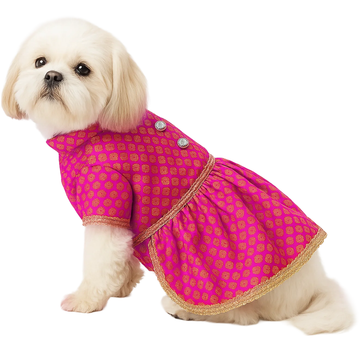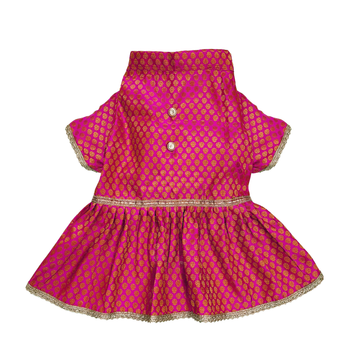Yorkshire Terrier

Yorkshire Terrier
| Breed Highlight: |
|
Yorkshire terriers, or Yorkies, are small, feisty, and dedicated to their owners. These former rat hunters now enjoy their status as fun, fearless companions especially suited for apartment life. |
| Weight: |
|
2.8 Kg – 4.6 Kg |
| Height: |
|
27 – 33 cms |
| Life Expectancy: |
| 11-15 years |
| Litter Size: |
| 2-6 Puppies. |
| Breed Appearance: |
|
Yorkshire terriers are proud little dogs, and they aren't afraid to show it. They might only weigh 7 pounds, but they carry an attitude big enough for a Great Dane. Even with all that sass, Yorkies are compact and ready for action—making the perfect "purse dog" who's tiny enough to take anywhere. Yorkies can sport two distinctive looks: With their silky hair grown out to the ground, or with their coats trimmed shorter in a puppy cut. Either way, their hair flows, they love to strut their stuff. They're cute and they know it. Yorkie’s standard colour combinations as black and tan, black and gold, blue and tan, and blue and gold. They'll require regular grooming with daily brushing to keep their coats from tangling, and they may need more attention from a professional groomer in order to keep their tresses flowing mat-free. Yorkies usually have dark eyes, but because eye colour often corresponds with their coat, it's not unusual to see dogs with light brown or even hazel eyes. |
| History: |
|
The Yorkshire Terrier was developed during the mid-1800s in the northern English counties of Yorkshire and Lancashire. It became a fashionable lapdog for proper English ladies in late Victorian times, but its beginnings were distinctly working-class. The breed is said to be the creation of weavers from Scotland who migrated to the English north country and brought their Scottish terriers with them. (We pause here to make the distinction between Scottish terriers, that is, terriers of Scotland, and the particular breed designated as Scottish Terriers.) Several breeds of now-extinct Scottish terriers are a part of the Yorkie’s genetic mix, along with such still-extant terriers as the Skye and Dandie Dinmont. One historical source suggests the addition of Maltese blood. The Scots weavers were proud of their tough little terriers, bred small enough to squeeze into the nooks and crannies of textile mills in pursuit of rodents. Jokes were made about the Yorkie’s long, silky coat, inferring that its finely textured hair was a product of the looms. The Yorkie’s home region was a centre of the mining as well as textile making, and many Yorkies were employed in coal mines as exterminators. The turning point in the breed’s history came in 1886 when the Kennel Club (England) granted the Yorkie recognition. With this splash of publicity, the Yorkie became fashionable as a ladies’ companion. And, as the Yorkie’s popularity among the fashionable increased, its size decreased to better meet its new job description: adorable, amusing companion sitting in the lap of luxury. Yorkies were first seen in America in the 1870s, |
| Originally: |
|
The Yorkshire Terrier originated in Yorkshire. In the mid-19th century, workers from Scotland came to Yorkshire in search of work and brought with them several varieties of terriers. |
| Currently Used As: |
|
With their long, silky coat and sassy personality, Yorkshire Terriers are prized toy dogs. In fact, they’re consistently one of the top ten most popular breeds. You may picture Yorkies as fancy city dogs, but they started out as rat hunters in textile mills and mines. Yorkshire Terriers pack a big Terrier personality into a small frame. |
| Training: |
|
Yorkies love their owners and are very intelligent and eager to please. Offering effusive praise and treats for good behaviour will work far better with the Yorkie than harsh corrections. Starting from an early age, the Yorkie should be socialized to strange situations, people, and other dogs. Take him into new situations slowly, and always in a calm and happy atmosphere. These should be positive experiences. Despite their small size, Yorkies can participate in and excel at canine activities such as rally, agility and obedience, and many Yorkies serve with their human partners in roles such as therapy work. |
| Health & Care: |
|
We know that because you care so much about your dog, you want to take good care of her. That is why we have summarized the health concerns we will be discussing with you over the life of your Yorkie. By knowing about health concerns specific to Yorkshire Terriers, we can tailor a preventive health plan to watch for and hopefully prevent some predictable risks. Many diseases and health conditions are genetic, meaning they are related to your pet’s breed. There is a general consensus among canine genetic researchers and veterinary practitioners that the conditions we’ve described herein have a significant rate of incidence and/or impact in this breed. That does not mean your dog will have these problems; it just means that she is more at risk than other dogs. We will describe the most common issues seen in Yorkshire Terriers to give you an idea of what may come up in her future. Of course, we can’t cover every possibility here, so always check with us if you notice any unusual signs or symptoms. This guide contains general health information important to all canines as well as the most important genetic predispositions for Yorkshire Terriers. This information helps you and us together plan for your pet’s unique medical needs. At the end of the article, we have also included a description of what you can do at home to keep your Yorkie looking and feeling her best. You will know what to watch for, and we will all feel better knowing that we’re taking the best possible care of your pal. Intelligent companion dogs, Yorkshire terriers do best with basic training and obedience classes. Because Yorkies can be very independent, owners dedicated to making sure these little pups learn their manners will be grateful in the long haul. |
| Living Condition: |
|
Smart and adaptable, Yorkies' small size makes them excellent apartment dogs, but they love going out on the town, too. It's their fearless, adventure-loving nature that helps them thrive in urban environments. They don't enjoy being left alone for long periods of time and can be prone to separation anxiety that may require additional training. If your Yorkie exhibits signs of anxiety or stress when you're away, ask your veterinarian for advice or enlist the help of an animal behaviourist. While your Yorkie may enjoy going out with you to explore, they're mostly indoor dogs that don't tolerate extreme hot or cold weather well. When it's cold, you may want to consider a proper jacket to help keep her insulated from the weather. Avoid taking your Yorkie out in higher temperatures, too—and always be sure she has enough water to drink if you must bring her out on warmer days. Remember, dogs don't sweat as we do, and you should keep an eye out for signs of heat exhaustion. |
| Exercise: |
|
Even small dogs require exercise to stay healthy, both mentally and physically. Yorkies will benefit from both moderate exercises, such as walks with their owner at a steady pace, as well as occasional short bursts of activity, such as chasing after a tennis ball in the backyard. A short walk twice a day will likely be enough for your Yorkie to see new scenery and burn off energy. Participating in dog sports such as obedience or agility also will provide beneficial activity to keep him healthy, while challenging his mind as well. |
| Grooming: |
|
Yorkies are definitely not low-maintenance pooches. If you keep their coats show-dog long, they need to be brushed daily, with their long topknot tied up and kept out of their eyes. Most pet-owners opt for a “puppy” clip, with the facial hair left a bit longer than the hair on the body. Regular trips to a professional groomer are a must, along with weekly baths. On the plus side, Yorkies don’t shed much, possibly making them less problematic for some people with allergies. However, this varies from dog to dog, so don’t believe anyone who tells you that Yorkies are “non-allergenic.” The rest is basic care: Trim his nails every week or two. (They should never get so long that you can hear them clicking on the floor.) And brush his teeth regularly with pet toothpaste for overall health and fresh breath. |
| Pros: |
| Fine-boned, elegant, easy to carry, doesn't take up much space, Sheds very lightly (one of the best breeds for allergy sufferers), Lively and inquisitive, moves swiftly with light-footed grace, Doesn't need a lot of exercises, A keen watchdog – won't fail to announce strangers, Peaceful with other pets |
| Cons: |
| Physically fragile, requiring a great deal of supervision and monitoring, Notorious housebreaking difficulties, Prone to barking, Regular brushing and combing, or regularly trimming/clipping the coat short, Suspiciousness, shrillness, and nastiness when babied or spoiled or not socialized enough or made to behave |












